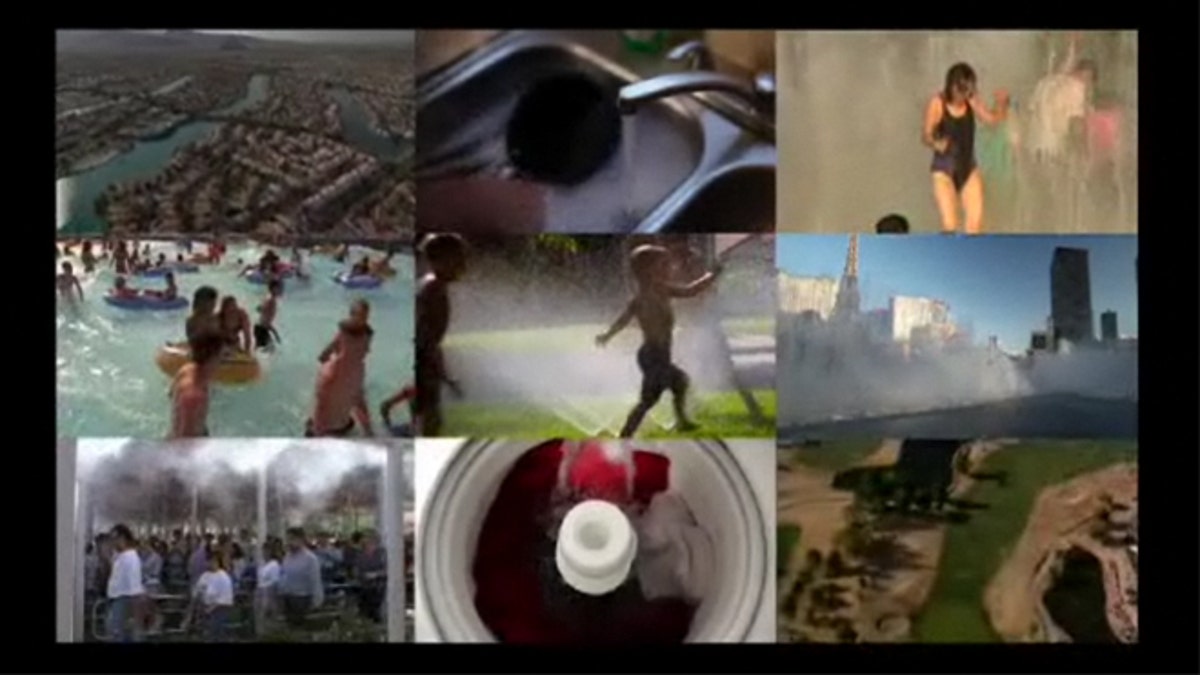
Still from the official "Last Call at the Oasis" trailer. (lastcallattheoasis.com)
A new documentary says the wars of the future will be fought over the world's dwindling water supply. But skeptics point out that water in the environment is a constant, and that the film company behind the documentary has a sketchy track record when it comes to predicting impending global catastrophe.
"Last Call at the Oasis" argues that water is becoming more sought after than oil. Directed by Jessica Yu and hosted by Erin Brokovich, "Last Call at the Oasis" shows communities struggling with water crises, and theorizes that farmers may soon be forced to sell their livestock because there isn't enough water to raise cattle. It goes on to explore the environmental, social and political factors it says threatens the water supply.
"Growing up in Kansas, my Republican father taught me that the greatest gift we have is water and that we might not be taking enough care of our water supply. We've taken water for granted and used our planet as a dumping ground; we are now seeing a lot of disease and illness in contaminated sites. We are already seeing communities with wells running dry, concerns in hydrofracking areas, water levels dropping," Brockovich told FOX411's Pop Tarts column. "This is a wakeup call. It's not a political issue, it is a human issue and we are on the brink of a very serious problem. We have to be goal and solution driven, and stop ignoring the problem."
"It's a very short time frame to which we could see some serious consequences dealing with water issues, areas depleted within 60 years," Yu adds, noting that the EPA (Environmental Protection Agency) is not equipped with the funding nor the legislative tools it needs to do its job effectively.
However, Christopher Horner, Senior Fellow at the Center for Energy and Environment, argues concerns over contamination and climate change impacting our water supply are overstated, noting America is a rich country that has adopted aggressive clean water standards. He also said that the global warming theory would neither reduce nor contaminate the water supply.
"In short, supply issues are real, but they aren't an issue of physical scarcity. If there were burgeoning problems, it would be because most water systems are owned by government. Opening up the market, so the likes of farmers can sell water to industry or cities, will clear up any problems quite quickly," Horner says. "And to quickly dispense with the alarmism, water is constant in the ecosystem. The problem is that it isn’t in the right place."
Dan Gainor, VP of Business and Culture for Media Research Center also dismissed the conclusions reached in "Oasis."
"Participant Media also brought us Al Gore's 'An Inconvenient Truth.' Now their latest climate disaster movie shows us all dying of thirst instead of freezing to death," he added. "Yes, some places have less water than others. It is certainly a commodity in Africa. But mankind has fought over almost everything that is a commodity at some time -- gold, silver, diamonds, food, land oil and more. We all need water, though the situation isn't as apocalyptic as the left make out."
The EPA did not respond to a request for comment on the film.
"Last Call at the Oasis" opens in theaters Friday, May 4.






